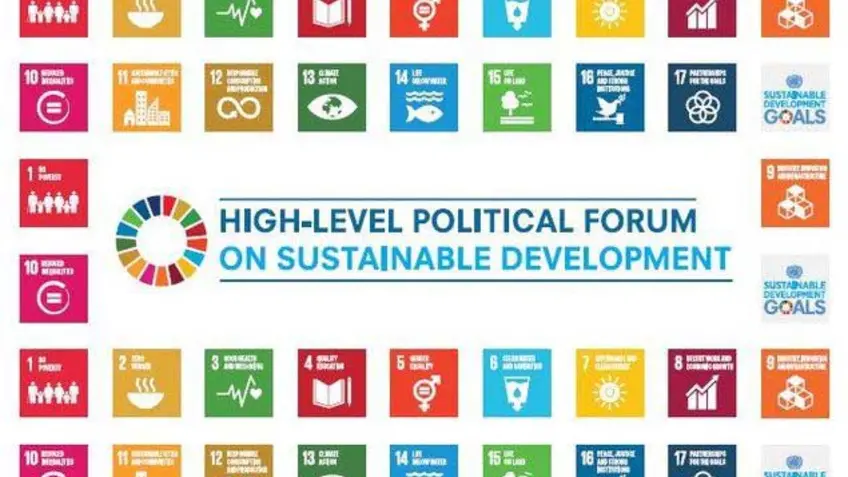Integrating Sustainable Development and Climate Action: Lessons from Five NDC Partnership Countries
Each July, representatives from around the world gather at the UN for the High-Level Political Forum (HLPF) to review national progress towards the Sustainable Development Goals (SDGs). The 17 SDGs, a key part of the 2030 Agenda for Sustainable Development, guide global progress towards achieving ambitious objectives by 2030, like ending poverty, eliminating hunger, and achieving good health and wellbeing. Only SDG 13 (Climate Action) is explicitly about tackling climate change, but all aspects of sustainable development will be impacted by the effects of a changing climate and by the actions of countries under the Paris Agreement on Climate Change, embodied in countries’ Nationally Determined Contributions (NDCs).
At the July 2018 HLPF event, NDC Partnership Members Mali and Germany’s Ministry of Economic Cooperation and Development (BMZ), together with World Resources Institute (WRI) and the NDC Partnership Support Unit, co-hosted a discussion on the joint implementation of NDCs and SDGs. Discussions included the launch of a new analysis of SDG-NDC synergies by WRI and the German Agency for International Cooperation (GIZ). Attendees heard from representatives of five NDC Partnership Member countries, including Nezha El Ouafi, Secretary of State to the Minister of Energy, Mines and Sustainable Development of Morocco and co-chair of the NDC Partnership; Boureima Camara, Director General for the Environment and Sustainable Development Agency of Mali; Julius Muia, Principal Secretary for National Treasury and Ministry of Planning of Kenya; Adolfo Ayusa Audry, Director General for the 2030 Agenda, President’s Office, Mexico; and Carolina Díaz Acosta, Director of Economic, Social, and Environmental Affairs of the Ministry of Foreign Affairs, Colombia.
Each country shared a unique story of how it is incorporating the Paris Agreement and 2030 Agenda into its existing planning frameworks with some notable common lessons emerging through their examples.
Countries see value in combining climate and sustainable development agendas
All participants portrayed the SDGs and NDCs as not only compatible, but as opportunities to rapidly advance broader sustainable development strategies. Morocco described its policies as, “win-win solutions for climate and sustainable development,” and Mexico explained that integration will, “increase impact, reduce costs, and avoid duplication and tradeoffs.” Mali made the point emphatically that, “there is one agenda: the SDG agenda. The NDC is necessary for achieving the SDG agenda.”
This means incorporating SDG and NDC objectives into existing development plans
To realize potential win-win benefits, countries have developed multiple approaches to mainstream NDCs and SDGs into existing development plans.
Kenya’s Vision 2030, for example, is a development program launched in 2008, to be implemented in five–year plans. Its 2018-2022 National Planning Framework explicitly brings together NDC and SDG objectives. Similarly, Colombia has launched a roadmap for SDG implementation to 2030 with quantitative targets and a new strategy for sustainable development. Morocco’s strategy for sustainable development includes 15 of 17 SDGs; for example, a commitment to 50 percent renewable energy by 2025 in line with SDG 7 (clean and affordable energy). The strategy also includes a large adaptation component and measures to turn the agenda into bankable projects.
Data and analysis are vital to underpin implementation, but must focus on national priorities
Developing effective strategies benefit quantitative analysis of NDC-SDG linkages, as well as a customized approach for each country that aligns with its own climate and development needs.
To determine the actions for its 2018-2022 plan, Kenya led an analysis of the country’s NDC and the SDGs, focusing on SDG 1 (no poverty), 5 (gender equality), and 10 (reducing inequality), and emphasizing four priorities—affordable housing, universal healthcare, food security, and industrialization.
Mali has also studied the alignment between its NDC and the SDGs, employing sectoral teams to determine each sector’s alignment, and is now developing a roadmap and investment plan for NDC implementation. This roadmap focuses on energy, agriculture, and land use.
Mexico quantitatively analyzed the ways in which investment in mitigation and adaptation measures in its NDC could contribute towards the achievement of SDGs other than 13 with no additional investment. The study found a relationship between Mexico’s NDC and 40 percent of the SDG targets, particularly those under SDG 6 (clean water and sanitation), 11 (sustainable cities and communities), and 12 (responsible consumption and production), especially in the agriculture and land-use sectors.
Countries have a variety of approaches to engage critical stakeholders
As all five countries affirmed, NDC-SDG analysis is useful, but only leads to effective implementation if there is cooperation among sectors, national and local governments, and civil society.
Mexico stressed however the challenges of engaging fully across sectors, as climate change is traditionally considered an issue to be dealt with by the environmental sector. By focusing on the benefits that climate action has in other sectors, the country has made progress to mainstream climate into the development agenda.
In addition to the involvement of multiple government ministries, Morocco and Colombia stressed the importance of a multi-stakeholder approach that includes local governments and civil society. In Morocco, Secretary of State El-Ouafi makes personal missions to Morocco’s countryside to ensure that national policies align with local sustainable development needs and plans.
All countries can learn from and teach each other
While these countries show that there is no one-size-fits-all blueprint for integrating NDC and SDG implementation, there are shared challenges, priorities, and strategies for success. By listening to one another we can learn from the commonalities and the differences. The NDC Partnership is proud to support its member countries as they pioneer ways to bring the SDG and NDC agendas together and share experiences to help advance both climate action and sustainable development.
